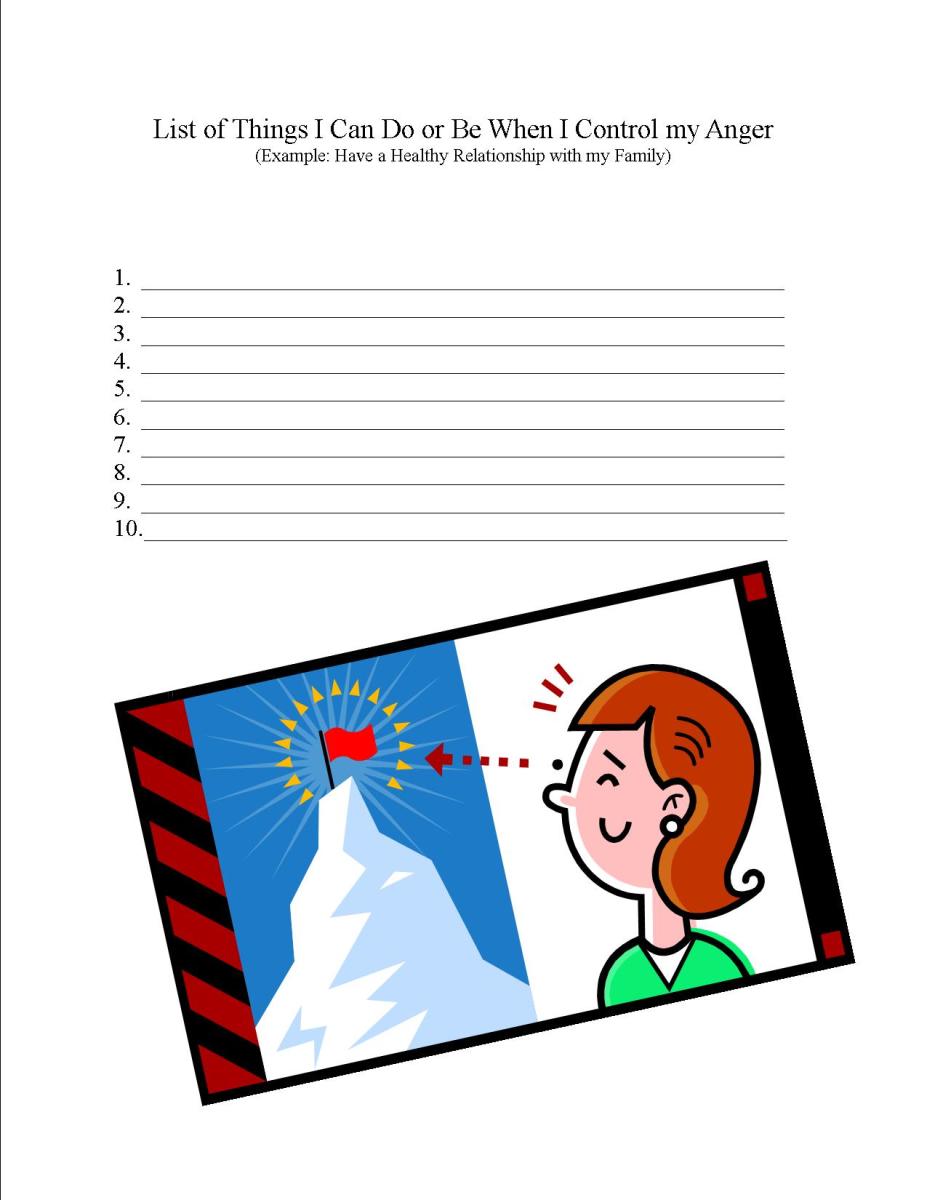How to Choose a Stress Management Plan
About the Author
I am a human being with six decades of life experiences. I am subject to the effects of situations and human interactions that can lead me to feel anxious, depressed or deflated. As such, I am on my own journey to learning to better cope with stress and am happy to share that journey with others.
Stress Management Is All About How to Handle Stress
As adults, we can all agree that Benjamin Franklin's axiom, "An ounce of prevention is worth a pound of cure," has merit. Through life experiences we've learned that acting to prevent something from happening is much easier than dealing with the effects of a situation after it's happened.
That's what a stress management plan is -- your ounce of prevention against the anxiety, depression and even anger that dealing with stress-producing events can provoke. Just as you are a unique individual, with your own unique life and life experiences, the stress management tools you choose and develop over time will be unique to you.
I had a friend who threw herself into housework when she was feeling tense and anxious. By the end of the day she'd not only alleviated her stressful feelings, but had a clean house to show for it. I tried that method of stress relief, but found it not so therapeutic for me.
Why would it work for one person and not another? I suspect it was due, at least in part, to her perspective about housecleaning versus mine. I found myself becoming increasingly resentful that my partner was out and about enjoying the day while I was "stuck" with boring, repetitive tasks. That's why one person may choose a morning walk to start the day off on the right foot, while the same potential stress-reducing activity may not appeal to another person.
So it is with stress management techniques, whether they be meditation, massage, physical activity, guided imagery, mindfulness-based stress reduction or one of the many other techniques and methods available for adding to your stress management plan -- no one or two or three techniques is going to work exactly the same for everyone. Fortunately, you don't have to be concerned with everyone. You need only work toward managing your stress.

Tips for Stress Management
Chances are that your stress management plan for the workplace and the one you have for home will be slightly -- or greatly -- different, depending on your choices for stress-busting and stress reducing techniques.
For instance, if you choose a daily yoga routine, positive affirmations and guided imagery as weapons in your personal stress management arsenal at home, the use of yoga and guided imagery may not be conducive to an office setting or an air traffic controller.
Be prepared to become familiar with and to practice several techniques to have in your stress management "tool box." You will ultimately benefit from having many options to avoid and banish anxiety, burn-out and depression.

Identify the Sources of Stress in Your Life
Before you can develop a strategy to reduce the feelings of stress, you first need to identify what things in your life result in you negative feelings. This will likely take more than a day or two and necessitates that you keep a journal or other written compilation of your stressors. It is important that each one goes from a possible nebulous idea in your mind to concrete words or phrases describing it.
Recording your stressors over a one to two week period will give you a fairly accurate idea of those events and situations where you respond by feeling anxious or deflated. It is also important to record your reactions to the stressors; you'll gain some important insights into yourself and into those things you do now that aren't aiding your stress management.
Identify Your Positive and Negative Coping Skills
During the same time that you're writing down those things that stress you, also notice what strategy you currently use to deal with each stressor. Your current tools for dealing with stress-provoking events may range from outwardly ignoring the situation to becoming loud and impatient. Try not to change the usual coping methods you've used, so during the evaluation phase of developing a stress management plan you will see an accurate picture of yourself.
A Stress Management Tip
Evaluate Your Causes of Stress and Your Current Coping Skills
After the one to two week period of recording those things that cause you stress and your current stress coping skills, take the time to pull each of the stressors from your notes and put them into a list. From the list, prioritize them as to their importance to you with being able to cope with each stressor
Then it's time for you to look at the stress coping skills you've been using. List them one by one and note whether each one is currently effective or not. If you're satisfied that any skills which are now effective will be adequate in the future, there is no need to change those. You'll certainly want to look for other ways to deal with stressors for which your present coping skills are ineffective.
Find Information on Stress Management Techniques
- Stress Management Techniques
Evidence-based procedures that reduce stress and promote health - Stress Management
Stress affects each of us in different ways. The American Heart Association offers advice on how to deal with stress. - Santa Clara University - The Wellness Center - Top 10 Stress Management Techniques
Top 10 Stress Management Tips - Stress management: MedlinePlus Medical Encyclopedia
Stress management and techniques
Steps to Finding and Choosing Stress Reduction and Stress Relief Techniques
* Learn about the various stress reduction and stress relief techniques: Open your mind to the possibilities. Don't rule anything out until you learn something about it. Books, magazines and the internet abound with resources. Your health care provider, spiritual adviser or mental health professional may have suggestions and ideas for the asking.
Here are some resources to get you started:
* Stress Management Techniques
* National Center for Complementary and Alternative Medicine
* Stress Relievers: Top 10 Picks to Tame Stress
* Begin choosing a method or technique that appeals to you: You may begin with something basic and add on as you learn more about yourself and the various techniques and methods. You may find that one or two basic changes help to reduce and relieve your stress. Consider, too, that you want to prevent stress in the future; is there a technique that appeals to you for ongoing stress management?
* Be realistic in your expectations: Know that most changes don't occur over night. Give yourself and the chosen stress-busting technique(s) time to work together to determine if you're reaping any benefits. Conscious changes to ways of thinking and being may take even longer before you work all the "kinks" out. Remember, it takes four weeks to six weeks for a new habit to form.
Now It's Time to Learn to Manage Stress
You've done all the footwork you needed to do before you begin to choose a stress management plan. Make no mistake, the time and effort that went into the initial stages will be rewarded now that the time has come to make changes.
- Look at your list of stressors. Is there anything on the list that can be avoided altogether? If so, that will be the first step of your stress management plan.
- Work to change those stressors that cannot be avoided. This is where skills such as assertiveness, improved communication, guided imagery, meditation or other stress management skills will be the most useful. Choose as many as you want, but choose at least two or three, so you'll always have some coping skill to use in nearly any situation.
- Realize you are not in control to change every situation that causes you negative feelings, but you do have choices as to how you react.
Before you become anxious or feel defeated by the stress management plan you are developing, be realistic about your expectations. Learning to change your current behavior into something more positive won't happen overnight. Celebrate the little victories along the way, such as when you dealt with a gossiping friend assertively or avoided making a luncheon date with a noxious in-law. Each success will breed more success; your life should slowly but surely have less anxiety and depression as you actively steer your own course.
Stress Management Plan Examples
- Stress Workbook
Stress workbook for work place stress - Stress Management Worksheet
Stress management worksheet
Stress Relief Management Information
- Kids and Stress ~ Stress Management for Children
Stress is a part of life. Helping children to learn how to recognize, and then how to cope with it, will help them to grow up to be healthy and happy adults. What can the adults in a child's life do to help them learn good stress management technique - Positive Affirmations Stress Management
Stress is a normal reaction to events in life. When life gets tough, positive affirmations stress management can help you change your behavior to the point where you are able to manage your level of stress. - Top 10 Stress Management Books
List of the top ten best stress management books. Reviews of the best books about stress management. - Stress Management: 6 Ways To Manage Work Related Stress
We've all experienced stress in the work place at one time. The following article gives you some advice on managing work related stress.








